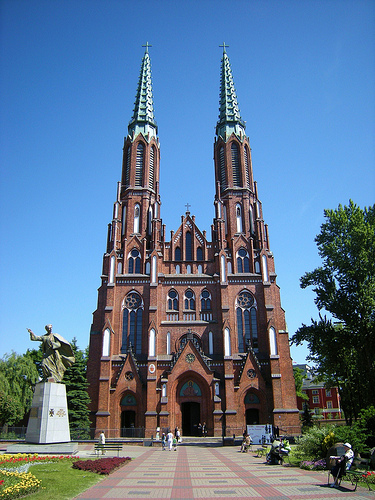
HISTORICAL AND POLITICAL CONTEXT
Poland is a European country, bordered by the Baltic Sea and Russia to the north; Belarus, Lithuania and Ukraine to the east; Slovakia to the south; and Czech Republic and Germany to the west. As of July 2016, the country was estimated to have a population of approximately 38.5 million. It comprises provinces.
Poland has, in some form, existed as an independent state since about the 10th century. Following a period of internal instability, in the 1770s the Polish-Lithuanian Commonwealth was divided among Russia, Prussia and Austria, bringing to an end the so-called “First Republic” of Poland. Poland briefly regained its independence after World War I, until its occupation by Germany in World War II and subsequent absorption into the Soviet Union. Poland continued as a Soviet satellite state until the collapse of the Soviet Union in 1989. Poland held free elections in 1989 and adopted its current constitution in 1997.
The Polish federal government is divided into three main branches—executive, legislative, and judicial.
In 2004 Poland was admitted to the European Union (the “EU”). As a member of the EU, Poland is subject to EU directives and regulations, as well as use of the Euro currency and participation in the free movement of people among EU member countries, among other programs. Poland’s membership in the EU creates an additional layer to its political process, as well as to the country’s approach to social issues, including matters of religious liberty.
RELIGIOUS CONTEXT
The Polish Statistical Yearbook estimated that, in 2017, approximately 33 million (about 86%) of Poland’s 38.5 million people are members of the Roman Catholic Church. The next largest religious group, the Polish Orthodox Church, with approximately 0.5 million members, represents approximately 1% of the country’s population. The remainder of the population is comprised of a variety of other religious groups, such as Protestantism, Judaism, Buddhism and Jehovah’s Witness, and non-religious individuals.
SOURCES OF LAW AFFECTING RELIGION
a.CONSTITUTION
The supreme law of Poland comes from the 1997 Constitution of the Republic of Poland (the “Constitution”). As described in greater detail below, legislation may be submitted only by certain individuals or governmental organizations. The Constitutional Tribunal has authority to, at the request of certain individuals, exercise judicial review of legislation to ensure compliance with the Constitution. Key provisions of the Constitution addressing religious freedom include the following:
Article 25 of the Constitution describes the relationship between the Polish government and religious organizations. Clause 1 of Article 25 provides that “Churches and other religious organizations shall have equal rights.” Clause 2 provides that “public authorities . . . shall be impartial in matters of personal conviction, whether religious or philosophical.” Clauses 3 through 5 set forth the manner in which relations between religious organizations and the Polish government are governed. Such relationships “shall be based on the principle of respect for [church] autonomy and the mutual independence” of churches and the government and “the principle of cooperation for the individual and common good.” Furthermore, relations between the government and religious organizations “shall be determined by statutes adopted pursuant to agreements concluded between their appropriate representatives and the council of ministers.” Relations with the Roman Catholic Church are “determined by international treaty concluded with the Holy See and by statute.”
Clause 1 of Article 35 provides that ethnic minorities “have the right to establish educational and cultural institutions, institutions designed to protect religious identity.”
Article 53 establishes individual rights of religious freedom. Section 1 provides “freedom of conscience and religion . . . to everyone.” “Freedom of religion” is defined to include “freedom to profess or to accept a religion . . . as well as to manifest such religion . . . publicly or privately” and the “possession of sanctuaries and other places of worship.” Furthermore, parents “have the right to ensure their children a moral and religious upbringing and teaching in accordance with their convictions.” Article 53 also allows “the religion of a church or other legally recognized religious organizations” to be taught in schools, without infringing the religious rights of others. Section 5 of Article 53 provides that public expression of religious beliefs “may be limited only by means of statute and only where this is necessary for the defence of State security, public order, health, morals or the freedoms and rights of others.”
Article 85 provides for religious-based exemptions from military service.
Article 191 provides churches and religious organizations with the right to make direct application to the Constitutional Tribunal regarding violations of constitutional freedoms, subject to legislative authorization that such matter is authorized for the Constitutional Tribunal to hear.
Article 233 provides that statutory limitations imposed in connection with martial law or states of emergency shall not limit the freedoms and rights provided by Article 53, among other provisions of the Constitution.
b.STATUTORY LAW
The Polish criminal code prohibits public speech that is offensive to religious belief. Church-government relations of some religions are governed by statutory adoption of agreements negotiated and entered into between the Council of Ministers and the related religious organization. Fifteen religious groups have statutory relations with the government of Poland.